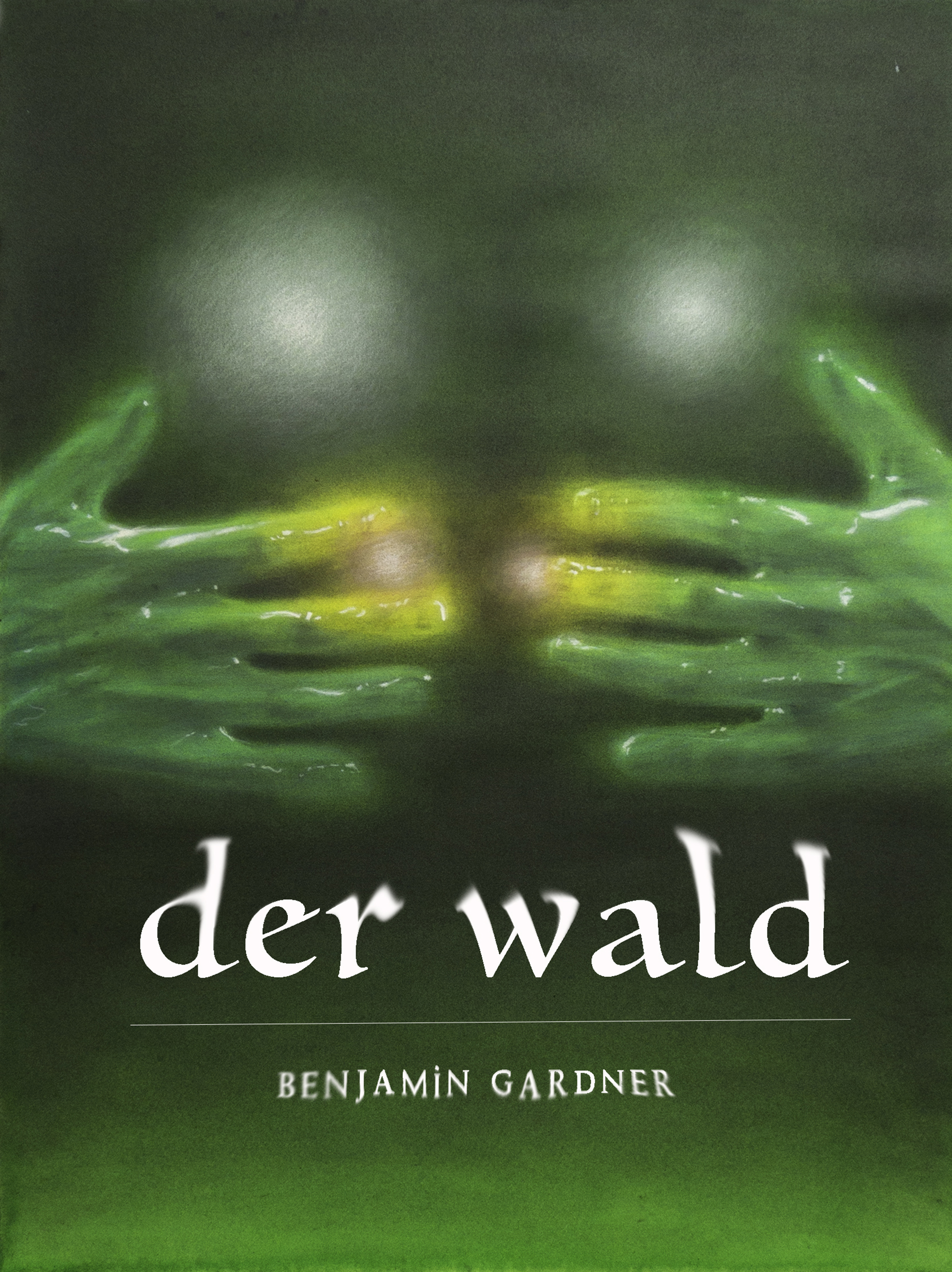BEN GARDNER
Der Wald
While listening to an opera in an old theater, Nathaniel, who is blind, walks up onto stage to discover that he is caught between two worlds. When his eyes are open, he senses an abstract and empty space he calls The Screen. When he closes his eyes, he sees a forest conjured by the hamadryads of the opera.
Both of these places are filled with terror, though. Nathaniel can't let go of the idea that his spouse, who left him without an explanation, is present in one of the worlds. He'll do anything for the chance to see Hana again. As he negotiates being in two places he also forms a covenant with The Director, an omnipresent and malevolent entity who haunts theater stages and seems to be conducting both worlds.
Der Wald is a story built from the parable of two wolves as Nathaniel feeds the wolf of negative emotions and becomes the horror in the woods. Drawing influence from the opera Der Wald by Ethel Smith andE.T.A. Hoffmann's short story "The Sandman", this incantatory and strange novella engages the tension between good and evil to remind readers of the transience of human emotions. As Smyth described the story of her opera, "It is a short and tragic story of paradox framed in the tranquility and unendingness of nature..."
Both of these places are filled with terror, though. Nathaniel can't let go of the idea that his spouse, who left him without an explanation, is present in one of the worlds. He'll do anything for the chance to see Hana again. As he negotiates being in two places he also forms a covenant with The Director, an omnipresent and malevolent entity who haunts theater stages and seems to be conducting both worlds.
Der Wald is a story built from the parable of two wolves as Nathaniel feeds the wolf of negative emotions and becomes the horror in the woods. Drawing influence from the opera Der Wald by Ethel Smith andE.T.A. Hoffmann's short story "The Sandman", this incantatory and strange novella engages the tension between good and evil to remind readers of the transience of human emotions. As Smyth described the story of her opera, "It is a short and tragic story of paradox framed in the tranquility and unendingness of nature..."
